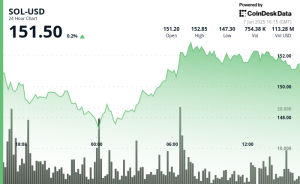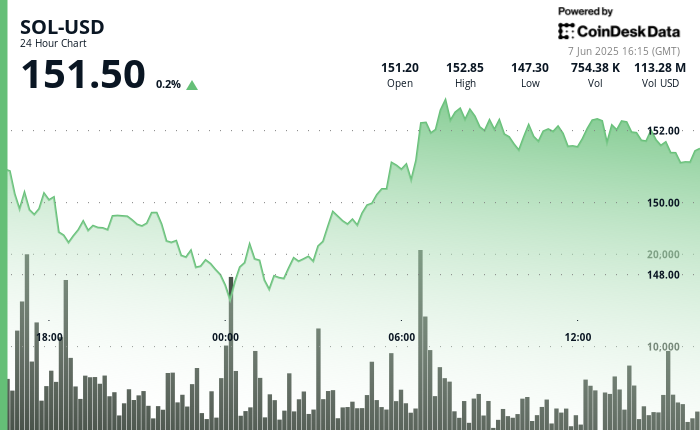Robinhood Markets (NASDAQ: HOOD) had a scorching 2025 in the first few months of the year, and it continued to barrel ahead in May. The online brokerage’s shares saw their value rise almost 35% across the month, according to data provided by S&P Global Market Intelligence, on the back of a well-received earnings report published on the last day of April, plus new and intriguing forays into cryptocurrency and related offerings.
While the key figures in that first-quarter earnings release were more or less in the ballpark of analyst expectations, there was no ignoring the hot growth rates posted by Robinhood.
Net revenue muscled 50% higher year over year to land at $927 million, thanks to robust year-over-year increases in transaction revenue from facilitating trades in assets such as cryptocurrencies (up by 100% to $252 million), options (56% higher at $240 million), and stocks (44% improvement to $56 million). Speaking of doubling (and then some), Robinhood’s net income for the quarter surged 114% higher to $336 million.
On top of that, Robinhood announced it was substantially raising the total authorized amount of its current share repurchase program to $1.5 billion from the previous ceiling of $500 million.
Management wasn’t necessarily thinking hard about stocks in that relatively warm month; no doubt inspired by its clientele’s embrace of cryptocurrency, it doubled down on its involvement with digital coins and tokens. In mid-May it announced a deal to buy Canadian company WonderFo Technologies, which owns a pair of regulated cryptocurrency platforms. The total equity value of the deal is roughly 250 million Canadian dollars ($183 million).
In its press release touting the deal, Robinhood said that its own “accessible, low-cost, and secure platform will build upon WonderFi’s mission and bring millions of Canadians greater access to crypto trading.”
During the month, Robinhood and crypto technology were connected in a Bloomberg article. The story stated that the brokerage plans to construct a blockchain-based trading system for European investors to transact in U.S. securities. Although details of the apparent plan were scant, it’s likely to utilize a digital token-based regime that would allow for those investors abroad to trade U.S. titles quickly and relatively cheaply.










